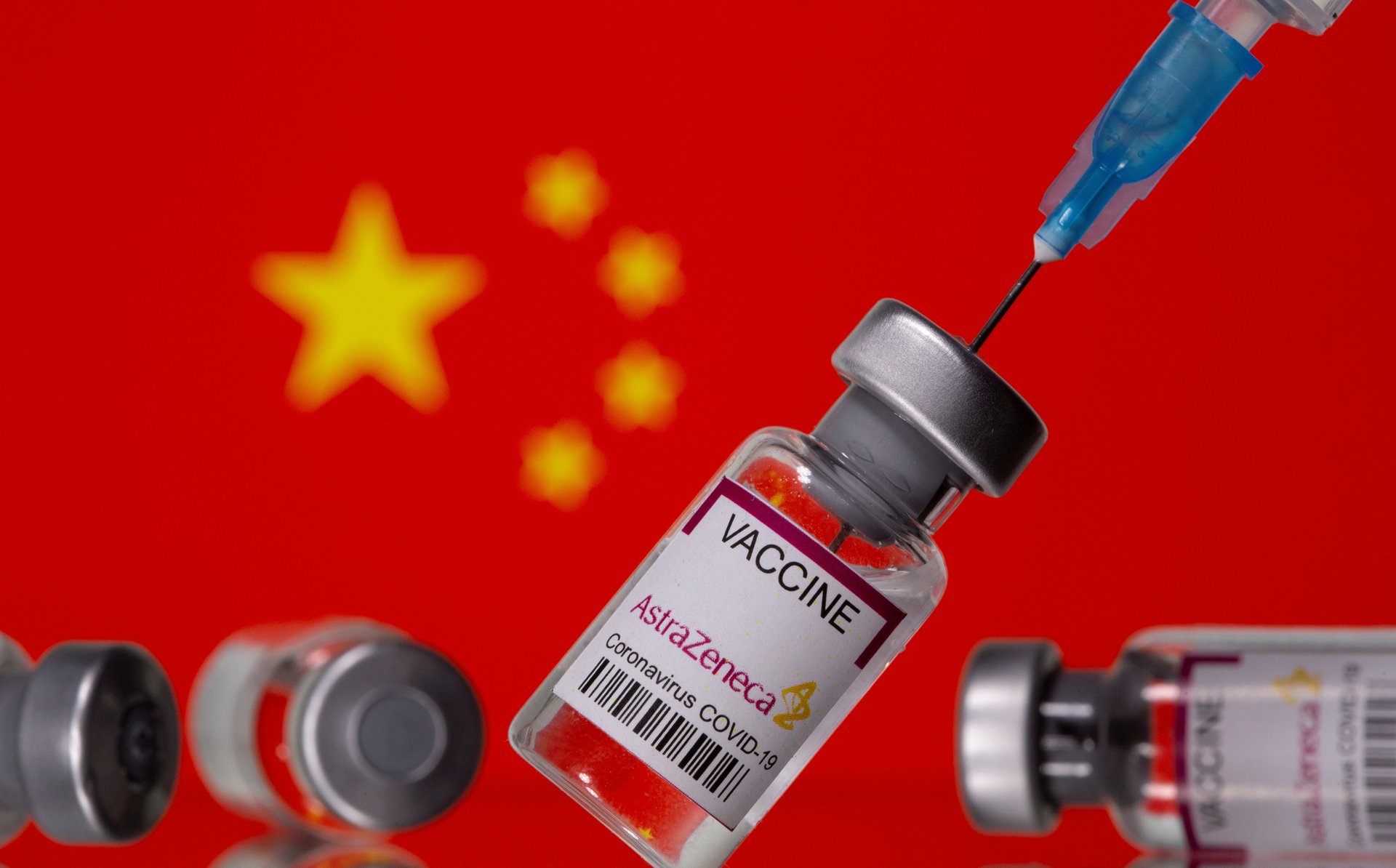China is boosting its vaccine diplomacy with visa perks for taking its shots
China’s giving a fresh push to its efforts to promote the use of its Covid-19 vaccines: a streamlined entry process for foreigners who’ve used a Chinese shot.


China’s giving a fresh push to its efforts to promote the use of its Covid-19 vaccines: a streamlined entry process for foreigners who’ve used a Chinese shot.
For almost a year now, after the coronavirus spread globally, the country has barred most foreign nationals. Those who can get in, usually for work, need to show a negative coronavirus test result and also take an antibody test before boarding, as well as quarantine for at least 14 days after arrival. But now, with global vaccination programs underway, and efforts ramping up to restart international travel with uniform testing protocols and vaccine “passports,” Beijing’s showing its determination to set its own standards for the resumption of travel.
During a press briefing on Monday (March 15), foreign ministry spokesperson Zhao Lijian said that China would immediately begin providing “visa facilitation” to foreign nationals who have taken Chinese Covid-19 jabs and have the certificates to prove it, with “a view to resuming international travel in an orderly fashion.”
While Zhao didn’t elaborate on what help China would provide, a notice from its foreign affairs ministry in Hong Kong painted a clearer picture. Visa applicants traveling to mainland China for work will no longer need to present invitation letters issued by state-owned enterprises or the commerce departments and foreign affairs offices of provincial governments as long as they have taken Chinese jabs. Those who are family members of Chinese nationals or permanent residents of the country, or who hold a special business travel card issued by the Asia-Pacific Economic Cooperation can also file applications. The negative Covid-19 test result requirement, and health and travel declaration form, will be waived for applicants from these three groups if they have received a Chinese Covid-19 shot. The travelers will still have to undergo a quarantine.
Chinese embassies in eight countries including the US and the Philippines have also posted similar notices, although most still require applicants to have negative coronavirus and antibody test results or to fill out a declaration form.
The new policy rewards those countries that are already using Chinese shots, such as Indonesia, Chile and Turkey. For countries already weighing the Chinese shots, the visa policy could offer another reason to go ahead with them. But it’s unclear how much it will further Beijing’s “vaccine diplomacy,” an effort to improve China’s global standing by dispatching vaccines to countries who might otherwise have to wait longer, since government vaccine decisions that appear too political could contribute to vaccine hesitancy.
The idea of vaccine passports already faces criticism for exacerbating inequalities in international travel, given some countries have been able to stockpile doses for all their citizens while others have not. Giving special privileges to travelers who have taken a certain kind of vaccine, rather than another, will add another layer of unfairness, especially when in most nations there is little individual choice as to which vaccine to take.
In any case, it may not really help China in terms of restarting inbound travel, given its top sources for foreign visitors include South Korea, the US, and Japan, none of whom are using the shots. The US has already arranged for all the doses it needs from Pfizer/BioNtech, Moderna and Johnson & Johnson.
And it could potentially hurt its own citizens’ efforts to resume travel if other countries were to reciprocally make visit rules more stringent for Chinese nationals who haven’t taken a foreign vaccine. China this month also launched a digital health certificate that contains details such as its citizens’ coronavirus test results and vaccination status on messaging app WeChat, which authorities hope can eventually help Chinese nationals to travel overseas.
China is at present only using its own Covid-19 vaccines domestically, and has approved four shots. The ones most in use are two vaccines produced by state-owned pharmaceuticals giant Sinopharm, and one from Nasdaq-listed biotech firm Sinovac. No foreign vaccines, such as the Pfizer/BioNtech shot or AstraZeneca’s, have been approved yet.
One possibility, of course, is that the new policy is a tactic to bargain for recognition of its own vaccines on equal footing with other vaccines as new Covid-19 travel rules come into shape this year.